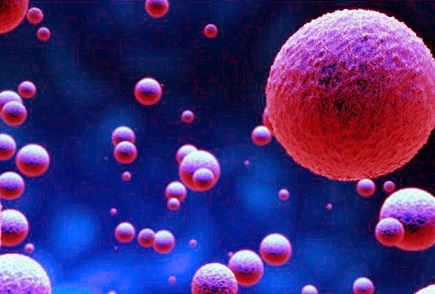Nikhil Prasad Fact checked by:Thailand Mediccal News Team Nov 30, 2024 1 year, 2 weeks, 3 hours, 51 minutes ago
Medical News: A breakthrough in the fight against inflammation has emerged from research conducted by scientists at the University of Strathclyde's Strathclyde Institute of Pharmacy and Biomedical Sciences-UK, the School of Health and Life Sciences at the University of West Scotland-UK, and the Defence Science and Technology Laboratory at Porton Down, Salisbury-UK. The team focused on non-ionic surfactant vesicles (NISV), microscopic structures already known for their potential in drug delivery. This study explored their unexpected ability to reduce inflammation, opening possibilities for safer, more effective treatments.
 Non-ionic surfactant vesicles provide new hope for inflammation treatment
Non-ionic surfactant vesicles provide new hope for inflammation treatment
Inflammation is the body’s defense mechanism against injury or infection. However, when this system overreacts, it can lead to severe conditions like sepsis or chronic autoimmune diseases. While anti-inflammatory drugs exist, many have undesirable side effects and limited efficacy. This
Medical News report highlights findings that could change the landscape of inflammation management.
The Study at a Glance
The research examined how NISV could mitigate inflammation triggered by immune cells. These vesicles, composed of monopalmitoyl glycerol, dicetyl phosphate, and cholesterol, demonstrated significant potential in reducing inflammatory markers. Specifically, the study revealed that NISV interferes with pathways involving NF-κB, a protein complex pivotal in controlling the immune response. By targeting this pathway, NISV offers a new method for treating inflammation without the risks associated with steroids or biologics.
The study involved experiments on bone marrow-derived macrophages - immune cells stimulated with lipopolysaccharides (LPS), a molecule that mimics bacterial infection. Results showed that NISV significantly reduced the production of IL-6, a key inflammatory cytokine, while maintaining cell health. This suggests that NISV can dampen inflammation without harming cells.
Key Findings
Reduction of Inflammatory Mediators
NISV decreased the production of various inflammatory cytokines, including IL-6, IL-12, and several chemokines. These effects were validated using advanced techniques like cytometric bead arrays and transcriptomic analyses. Importantly, these effects occurred without compromising cell viability, a common concern with many anti-inflammatory treatments.
Mechanism of Action
The study provided evidence that NISV inhibits NF-κB and other related pathways. NF-κB is often activated in response to infections or injuries, leading to the production of inflammatory proteins. By downregulating NF-κB subunits, NISV effectively curtailed the immune response at its root.
Broader Implications
NISV showed efficacy across multiple pathways triggered by different immune stimuli. This included signals dependent on MyD88 and TRIF, two c
ritical adapters in immune signaling. Such versatility suggests that NISV could be effective against a wide range of inflammatory conditions.
Metabolic Effects
While primarily focused on immune signaling, the study also noted changes in cell metabolism. For example, NISV reduced levels of succinate and itaconate, metabolites linked to inflammation. These metabolic shifts further underline NISV's role in modulating the immune response.
How This Differs from Current Treatments
Current anti-inflammatory therapies, such as steroids and biologics, often come with significant side effects, including immune suppression, metabolic issues, and increased risk of infections. NISV offers a targeted approach, limiting inflammation without broadly dampening the immune system. Additionally, unlike biologics, which can lose effectiveness over time, NISV operates through a mechanism less likely to provoke resistance or adverse reactions.
Potential Applications
-Sepsis Management
In life-threatening sepsis, where the immune system overreacts to infection, NISV could help mitigate the deadly cytokine storm while preserving necessary immune functions.
-Chronic Inflammatory Diseases
Conditions like rheumatoid arthritis or inflammatory bowel disease could benefit from a treatment that reduces inflammation without long-term side effects.
-Adjuvant in Vaccines
Interestingly, while NISV were initially developed as vaccine adjuvants, their anti-inflammatory properties could enhance vaccine effectiveness by reducing unwanted inflammatory reactions.
Conclusion
This research highlights the remarkable potential of non-ionic surfactant vesicles as a novel anti-inflammatory agent. By targeting specific pathways like NF-κB and modulating immune responses, NISV offers a promising alternative to traditional therapies. Their versatility in addressing both MyD88 and TRIF-dependent pathways further underscores their potential in treating a variety of inflammatory conditions. Unlike many existing treatments, NISV balances efficacy with safety, reducing inflammation without compromising overall immune function or inducing significant side effects.
The findings also open doors to further research. While the study focused on macrophages and laboratory conditions, future work could explore the efficacy of NISV in clinical settings and across different patient populations. If these results hold true, NISV could transform the management of inflammatory diseases, improving outcomes and quality of life for millions worldwide.
The study findings were published in the peer-reviewed Journal of Inflammation.
https://link.springer.com/article/10.1186/s12950-024-00419-5
For the latest in Inflammation, keep on logging to Thailand
Medical News.
Read Also:
https://www.thailandmedical.news/news/new-findings-reveal-potent-anti-inflammatory-and-cancer-fighting-compounds-from-a-mediterranean-herb
https://www.thailandmedical.news/news/the-anti-inflammatory-power-of-probiotic-lactiplantibacillus-plantarum-z22-found-in-fermented-vegetables
